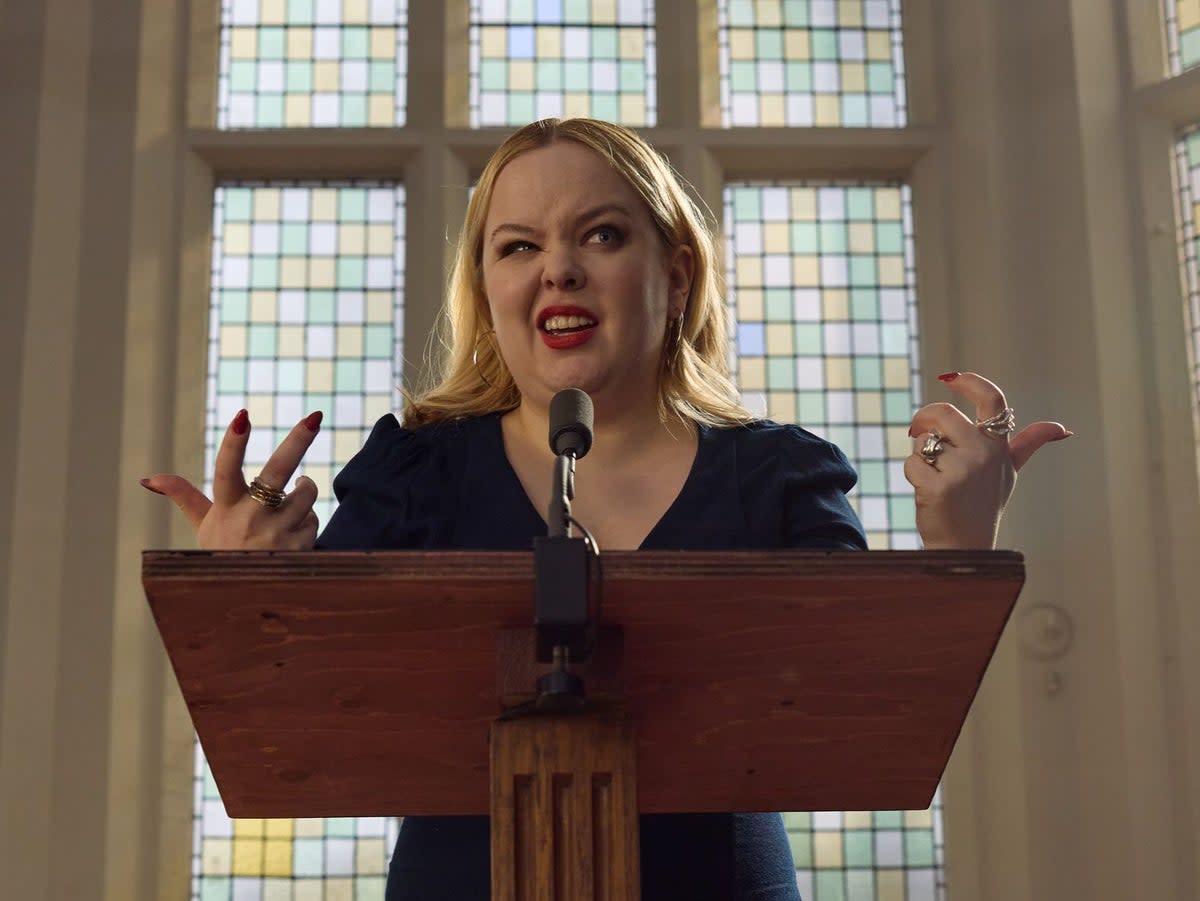Big Mood review: Nicola Coughlan has enormous fun as an anxious do-badder – but the comedy is unrefined

There was a time – not so long ago – when the modern sitcom was populated by a cohort of yuppies, brimming with disposable income for shenanigans, and living like kings in some of the most expensive cities in the world. And then, a few years ago, things began to change. The tone became regretful: “data analysis” jobs were replaced by unfulfilled creative aspirations, the money dried up, and house shares were swapped in for the labyrinthine penthouses. And in this mould comes Big Mood, a new Channel 4 comedy about two best friends struggling to navigate the transition to adulthood.
Nicola Coughlan is Maggie, a playwright juggling her writing ambitions with her barely suppressed mental illness. Her only rock in this turbulence is Eddie (Lydia West), who owns a wildly unsuccessful bar and provides the hectic Maggie with a degree of stability. As Maggie approaches a milestone birthday, things start to disintegrate for the two pals: Maggie pulls herself off her prescribed lithium, to free up her creative process, and spirals, while Eddie’s sleazy brother pushes her to sell the bar. “I’m turning 30 soon,” Maggie announces, “and I just want to be a good person.”
Coughlan, who has previously played anxious do-gooders in Derry Girls and Bridgerton, has enormous fun here as an anxious do-badder. Her Maggie is a ball of chaotic charisma and the performance cleverly elides the line between Maggie’s native absurdity and the fluctuations of her bipolar. Where does the performative streak end and the manic streak begin? “It’s not a funk,” she implores, “it’s a mood disorder.” It is a big, fidgety performance, against which West plays Eddie remarkably straight. Guest stars, like Sally Phillips as a blundering psychiatrist, Max Bennett as Lydia’s douche ex-boyfriend Jonah, and David Bedella as smarmy entrepreneur Clyde (“It was a business trip, I barely even knew Jeffrey!”), blow in and out of this central hurricane.
The phrase “big mood” is online slang for something that people find relatable, even when it veers towards the ludicrous or stylised. Think Peggy Olson in Mad Men, wearing sunglasses, cigarette hanging out of her mouth, walking out of work with a box of desk detritus: big mood. And, at times, Big Mood feels cynically designed to evoke this reaction. Maggie turns up to her old school wearing a “shag-me outfit” to seduce her old teacher: big mood. Maggie swigs champagne in a filthy, graffitied pub toilet: big mood. Caught between censuring Maggie for her obviously self-immolating behaviour and glamorising it for the sake of emotional resonance, Big Mood’s portrayal of mental illness is compelling but uncertain.
“I’m great at depression,” Maggie declares, solemnly. “I’ve got it down to a fine art.” And while Coughlan depicts Maggie’s bipolar disorder vividly and viscerally, Big Mood’s comedy is less refined. Writer Camilla Whitehill is, like Maggie, predominantly a playwright, who has also collaborated with Coughlan on a comedy podcast, Whistle Through the Shamrocks. But Big Mood’s sense of humour struggles to assert itself. The grimness of Maggie’s situation – often teetering on the brink of financial, professional, and personal ruin – predominates. While the closest analogue for Maggie is probably Lena Dunham’s Hannah Horvath in Girls, the tone of much of the comedy is closer to Phoebe Waller-Bridge’s Fleabag. Dark, brooding, fretful. But with the jokes infrequent and low-key, the requisite chiaroscuro – the balance of light and shade – is missing.
The result is a series that crams a lot of talent into six 25-minute episodes, yet always feels rushed and indecisive. Should it be gritty or stylish? Real or surreal? Depressing or uplifting? In truth, while the idea of a sitcom centred around mental illness – rather than, you know, which members of a friendship group are currently shagging – is appealing, the show just isn’t funny enough. Light on jokes, self-conscious, underwhelming: maybe that’s the biggest mood of all.


